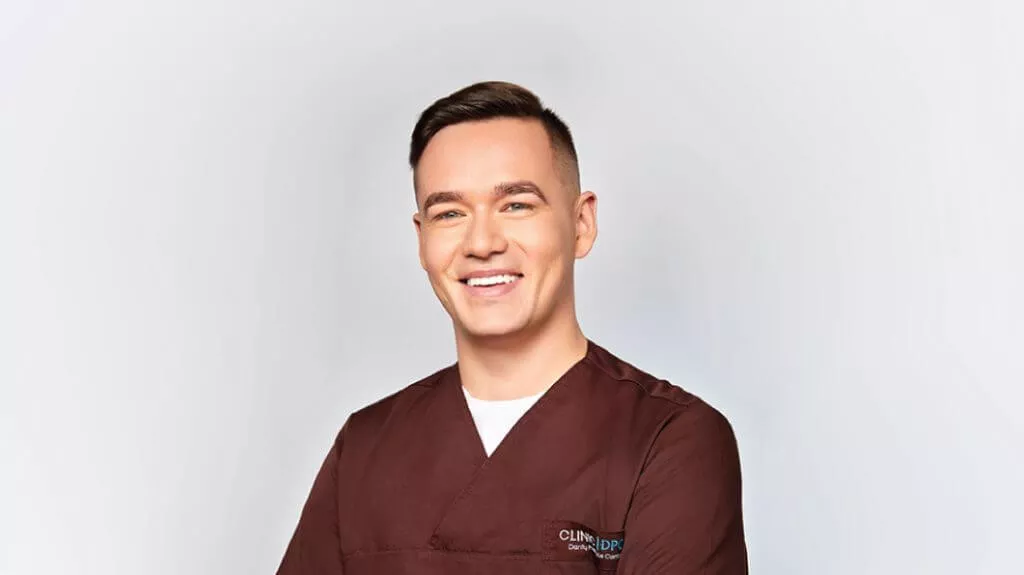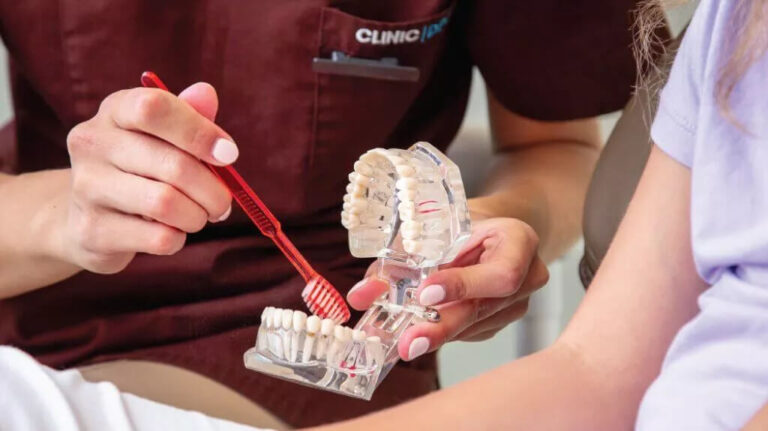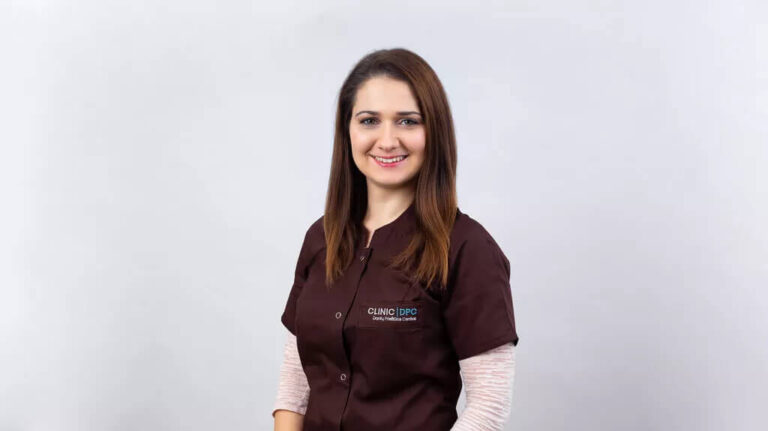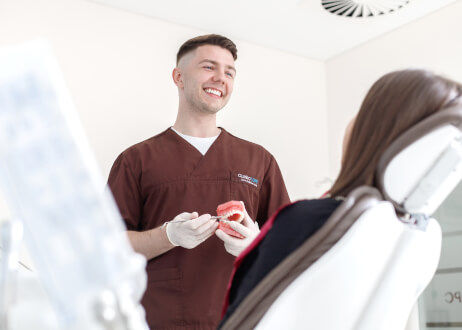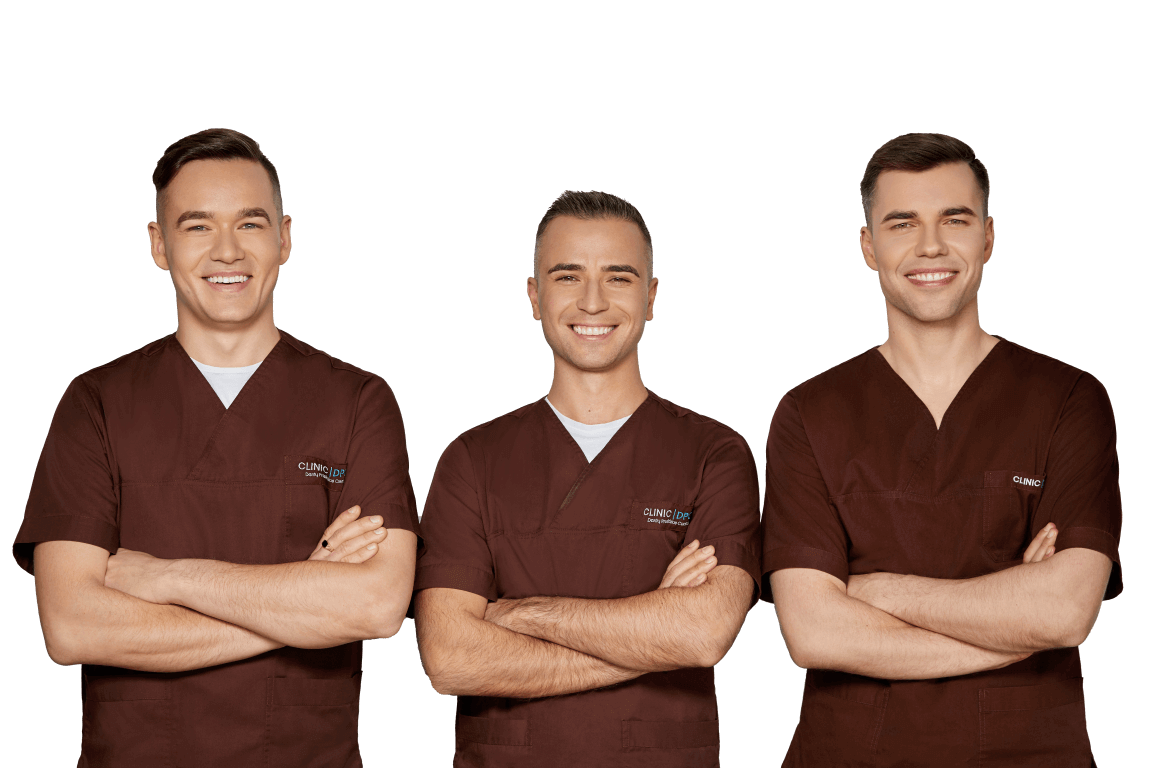Modern dental implant and prosthetic procedures have advanced to the point where a full arch of teeth can be restored in a day. And yet, tooth restoration is one of the most uncomfortable and mythical topics in Lithuania today.
A conversation with dentist Remigijus Laurinčíkis, a dentist at CLINIC | DPC, who has performed over 800 dental implant procedures and has attended the best dental training courses in the USA and Switzerland, on why our society’s attitudes towards dental implantation are changing much slower than the advancement of dental technology, and on how the dental community is helping its patients to get rid of their fear of classical dental procedures.
Before the procedure – and debunking common myths
Dentist R. Laurinčikas makes no secret of the fact that in his work he often has to deal with patients’ fears, which are often caused by myths and rumors.
“There are fears that implants are made of harmful particles and are rejected by the body. They also say that implants are a long and tedious procedure, and that the patient has to suffer without teeth while the implant heals, whereas in reality, both one tooth and a full arch of teeth can be restored in a day. Dentistry is advancing rapidly, not only in the world but also in Lithuania, with the help of the latest technologies, but this is not often believed in our country,” says the doctor.
“I would say that today in implantology it is not only the technology that is important, but also the patients’ attitude and psychological disposition. I chose this profession because of the opportunity to help people restore what they have lost and what is very important, so I am well aware of the psychological challenges that can arise from both tooth loss and tooth restoration. For this reason, I believe that in this field, it is not only how the procedure is carried out, the explanation of the methods used, but also the communication with the patient, the bond of trust. In this respect, the ideal for me is the culture of communication that has developed in the USA, in which the patient and the doctor work together on certain issues and are equal participants in the treatment process,” says R. Laurinčikas, who has studied at the International Institute of Implantology in the USA.
More confidence comes from talking to your doctor
In the opinion of the CLINIC | DPC doctor, the doctors should be the first to help patients overcome the psychological discomfort and fears associated with smile restoration. That is why he has always strived to be part of this patient-centred dental community.
“When I wanted to improve my knowledge and practical skills at the beginning of my career, my choice of CLINIC | DPC for my practice was motivated not only by the professionalism of the doctors, but also by the way they approach and communicate with the patient. I was also impressed by the clinic’s interior and cosiness, which makes you feel at home and forget all your fears”, smiles R. Laurinčikas.
He adds that nowadays it is customary for him to simply talk to the patient before each procedure, answering all their questions. “I try to take my mind off the procedure, remind them that there is absolutely nothing to be afraid of and that it won’t hurt. Even though it seems like a small thing. After all, you say what many people rationally know, but in reality, the communication itself means a great deal to the patient’s psychological and physical condition. In fact, after the procedure, patients confirm that there was more fear than unpleasant sensations or pain,” the dentist shares his thoughts.
A test not only of professionalism but also of humanity
“I think that CLINIC | DPC is one of the few dental clinics in Lithuania where a culture of deep respect for the client really exists. This, I think, comes first and foremost from the founder of CLINIC | DPC, Simonas Bankauskas. I have always admired not only Simonas’ drive to do his job professionally, to resolve the most difficult situations, but also his ability to remain positive, to interact pleasantly with his patients, who eventually become almost friends. It is interesting, by the way, that since I have been working here, most of my friends have also become my patients. So it seems that the culture of this clinic network is really helping me to pass the trust test”, says R. Laurinčikas.
He stresses that a culture of communication with patients, understanding and trust does not come naturally or with time – it takes effort. “I have seen for myself that one of the most difficult things in my daily work is to leave after a difficult procedure and, as if to turn over a clean slate, to meet a new patient with a smile and a new emotion,” he says, adding that this effort really pays off. – I remember after what seemed like a routine procedure, where three lost teeth were restored, the patient was so grateful that she hugged me, thanking me and the team. As doctors, we really remember moments like that, because it is a very important recognition not only of our professionalism but also of our humanity.”

